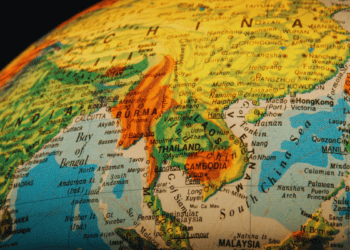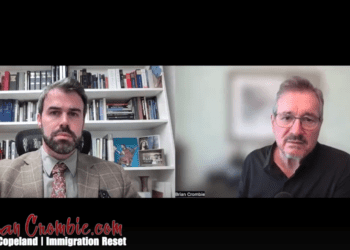On March 27 at the Canadian War Museum, in the latest instalment of the Macdonald-Laurier Institute’s Great Canadian Debates series, York University professor Daniel Drache and National Post columnist Barbara Kay debated the resolution: “Free speech in Canadian Universities is an endangered species”. Drache argued against, Kay argued in favour. Op-eds based on their opening arguments were published in the National Post. To read Barbara Kay’s piece click here.
Daniel Drache, March 28, 2014
In an era of a billion virtual soapboxes on the Internet, does the university have a special responsibility to defend free speech on controversial issues and provide space for fiery public debate? Does every crackpot, eccentric, provocateur or bona fide activist have a right to speak on campus?
The 2013 “campus freedom index” from the Calgary-based Justice Centre for Constitutional Freedom found that 23 out of 45 universities surveyed prevented groups such as anti-abortionists, pro-lifers, Israel apartheid supporters and anti-Palestinian speakers on campus from delivering their messages. Are universities running away from controversy and the free exchange of ideas? For now, this fear is overblown.
Each year, there are more than 2,000 invited speakers coming to Canadian universities, speaking on every subject conceivable from every point of view. Out of this group, 23 speakers or groups were refused an invite? Hardly a paralyzing moment, and only for libertarians is it a red flag. Why? The simple answer is that a high-priced celebrity speaker such as Ann Coulter, to use a favourite example, has a million platforms for anyone interested in her message.
In theory, free speech is the right to voice your opinion without reprisal or recrimination. Unfettered free speech is the foundation for a strong, vibrant society. Hearing all sides of every point of view is of immense value because everyone needs to be informed, and to be informed is to be responsible.
But freedom of opinion is not an absolute right — you cannot disrupt classes, you cannot prevent others from speaking, you cannot advocate hatred, racism, ethnic discrimination, deny the Holocaust. The university and faculty are subject to criminal law, Canada’s hate laws in particular, and human rights legislation. So however broad the concept, there is no absolute right to free speech. The university can choose who gets a platform; who is allowed to speak and who gets invited into the conversation.
How should we regard a few stories of cancelled speaking events by right-wing commentators? Frequently it is not the administration that has disinvited provocative speakers on explosive issues but often student councils who don’t want to give a platform to anti-abortion, pro-zionist or men’s issues groups. It makes little sense to sensationalize these occasions since all these issues are studied and debated in depth in seminars, essays and the curriculum. The university curriculum is more diverse than at any time in its history.
In the last decade, a handful of universities such as Concordia, York and Ottawa have revoked invitations of high-profile controversial speakers to appear on campus for reasons of their personal security, including Coulter’s famously aborted talk at the University of Ottawa in 2010. Clearly, universities need to look at their principles and practices and come up with better answers. But these few security-related incidents don’t amount to an existential threat to freedom of speech on campus.
In the age of the Internet, the voices of dissent and contrarians are everywhere. Free-speech is alive and robust, but it has largely decamped from the university to social media. Edward Snowden, WikiLeaks, and the revelations of the U.S. National Security Agency’s global spying apparatus have all changed the parameters of free speech and even academic freedom. The university isn’t at the epicenter any longer, even if freedom of speech and academic freedom remain pillars of the university’s mission.
When deans, departmental chairs or presidents overstep and act in arbitrary ways by ignoring the rules and principles on which the university is governed, the real issue at stake is the integrity of the institution. Free-speech and academic freedom are always about the who, why, what and where of governance.
Life in the university always has had a Foucaultian quality to it of order, discipline and power. It was not so long ago that Canada’s leading political thinker, Frank Underhill, was to be fired from the University of Toronto for what he wrote, but he had tenure. Harry Crowe was fired from United College in Winnipeg when he criticized the dean. Simon Fraser professors were fired in the 70s for their political activities.
More recently, in 2012, recall the scandal when a Research in Motion founder wanted to donate $30 million to the University of Ottawa for an international law school, but was refused on the grounds that the “gift” violated the principle of academic freedom. Despite this, York University took the poison chalice; but the Osgoode faculty of law professors rejected the offer of a public-private partnership. The private donor’s research institute wanted to be able to veto faculty appointments. No one at York was fired for opposing their dean, VP and president. They had tenure.
There have always been challenges to free speech on campus, but the difficulties of a few right-wing student groups and outside commentators that have caused such a media storm in recent years don’t really rank among them. The greatest threat to the integrity of the University, Harold Innis once wrote, was “the descent of the University into the marketplace.” It is still true today.
National Post
Daniel Drache is professor emeritus and senior research fellow at the Robarts Centre for Canadian Studies at York University.




